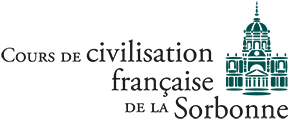The importance of phonetics lessons when learning French
The phonetics laboratory, an integral part of the CCFS courses
Learning a new language is often complex, and French is no exception on this matter. One of the major challenges in the learning process is developing good oral skills, which makes phonetics lessons essential for non-French speaking learners. Phonetics is the study of language specific sounds, their articulation, pronunciation and intonation. The Cours de Civilisation Française de la Sorbonne phonetics laboratory is therefore a key element of the institution’s own pedagogy.
Improved pronunciation
Phonetics helps learners understand how French sounds are produced, which gradually helps them pronounce words correctly. Phonics teachers teach the particularities of each sound, the rules of liaison and elision, and how to avoid common pronunciation errors.
Facilitate oral comprehension
The ability to hear and understand French speech correctly is crucial for communication. Phonetics lessons help students get used to variations in French accent and intonation, which improves their understanding of the language when listening to native speakers.
More effective communication
Good pronunciation and appropriate intonation are essential to communicating effectively in French. Phonetics lessons allow learners to express themselves more clearly, which builds their confidence when speaking with native French speakers.
Learn to speak with a French accent
Non-native speakers often have a distinct foreign accent, at least at the beginning of their learning. Phonetics lessons help minimize this accent by teaching students the nuances of French pronunciation. Although maintaining a slight accent is normal, better pronunciation obviously makes communication smoother.
Methods and advantages of phonetics courses at CCFS
Personalized follow-up
The phonetics courses offered by the CCFS are structured to help learners acquire progressive skills in pronunciation and listening comprehension. They are also specific to different mother tongues; an initial level test allows students to be grouped according to their own difficulties and competences in French: a professor specializing in applied linguistics will then have the students work individually in a laboratory.
Sound analysis
Phonetics lessons often begin with the study of the specific sounds which characterize a language, with an emphasis on their correct production. Learners learn to differentiate French sounds that might not exist in their native language.
Phonetic transcription
As part of a phonetics course, students may be required to use the International Phonetic Alphabet (IPA) to transcribe words and phrases into phonetic notation. This helps them visualize the correct pronunciation.
Pronunciation exercises
Repetition is essential. Phonics lessons often include repetition and mimicry exercises to help learners practice pronouncing French sounds and words in the proper way
Listening and correction
Teachers play a vital role in providing a model of correct pronunciation and correcting students’ errors. Listening and feedback are key elements of phonics lessons. Phonetics courses at the Cours de Civilisation Française de La Sorbonne emphasize articulation, accentuation, or intonation depending on the level and specific needs of each international student.











